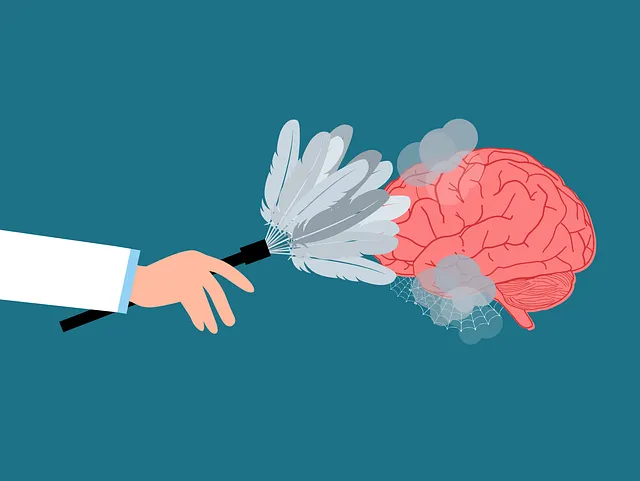In Denver, Kaiser's mental wellness group facilitation stands out due to its expert facilitators who create safe, inclusive environments. These professionals guide sessions using active listening and interactive activities, fostering open communication and trust among participants. Their techniques promote positive thinking, stress management, and resilience, offering unique growth opportunities through peer support. Searches for 'does Kaiser have good therapists Denver' highlight the comprehensive approach to mental health care, emphasizing success in group facilitation through various measurable impacts, from journaling exercises to a Mental Wellness Podcast Series.
Mental wellness group facilitation is a powerful tool for fostering community and support in Denver. This article delves into effective techniques used by local professionals, focusing on how facilitators create engaging environments that encourage open communication. We explore strategies for building trust and safety, essential for successful group therapy sessions. Additionally, we discuss measuring the impact of these groups and highlight whether Kaiser’s therapists in Denver are known for their quality care.
- Understanding Mental Wellness Group Facilitation: A Denver-Focused Approach
- The Role of a Facilitator in Effective Group Therapy Sessions
- Engaging Techniques to Foster Open Communication
- Building a Supportive and Safe Group Environment
- Measuring Success: Evaluating the Impact of Mental Wellness Groups
Understanding Mental Wellness Group Facilitation: A Denver-Focused Approach

Mental wellness group facilitation is a specialized skill that plays a vital role in supporting individuals’ emotional well-being. In Denver, where public awareness campaigns have been instrumental in promoting mental health services, the demand for effective group therapy sessions has grown significantly. Kaiser, known for its good therapists and comprehensive healthcare services, leads the way in providing these essential programs.
A Denver-focused approach to mental wellness group facilitation emphasizes creating a safe and inclusive environment where participants can share their experiences, foster positive thinking, and learn stress management techniques. This collaborative process empowers individuals to build resilience and navigate life’s challenges more effectively. By combining professional guidance with peer support, these groups offer a unique opportunity for growth and healing within the community.
The Role of a Facilitator in Effective Group Therapy Sessions

In effective group therapy sessions facilitated by experts like those found at Kaiser in Denver, the role of the facilitator is multifaceted and crucial. They serve as a neutral party, guiding participants through discussions and activities aimed at promoting emotional well-being. A skilled facilitator creates a safe, supportive environment where each member feels heard and valued, fostering open communication and trust. This atmosphere encourages individuals to share their experiences, challenges, and victories, helping them gain new perspectives and build coping strategies for managing stress and anxiety.
The facilitator plays a vital role in navigating the group dynamics, ensuring every participant has an opportunity to engage. They use various emotional well-being promotion techniques and stress management workshop organization methods to enhance interactions and facilitate meaningful discussions. By incorporating these techniques, facilitators not only help members find relief from anxiety but also enable them to develop lasting skills for coping with life’s challenges. This supportive environment is key to the success of group therapy sessions, ultimately contributing to improved mental health outcomes for all participants.
Engaging Techniques to Foster Open Communication

In fostering open communication within mental wellness groups, facilitators employ engaging techniques that create a safe and supportive environment. One such technique involves encouraging active listening, where group members take turns sharing their experiences and feelings while others focus on understanding and empathizing rather than reacting. This promotes deeper connections and encourages participants to feel heard, which is crucial for building trust within the group.
Additionally, facilitators can incorporate interactive activities that not only break the ice but also stimulate conversation. These activities may include exercises in mindfulness or role-playing scenarios designed to explore different aspects of mental wellness. By integrating these engaging techniques, stress reduction methods become more accessible and effective, mirroring the comprehensive Stress Management Workshops offered by reputable organizations like Kaiser, where therapists in Denver are known for their expertise.
Building a Supportive and Safe Group Environment

Creating a supportive and safe space is paramount when facilitating mental wellness groups. This involves establishing ground rules that encourage open communication, respect, and confidentiality from the outset. As a facilitator, it’s crucial to model active listening and non-judgmental attitudes, fostering an environment where members feel comfortable sharing their experiences. Techniques like using icebreakers and encouraging positive affirmations can help build camaraderie and promote feelings of belonging.
Additionally, ensuring accessibility and diversity in group activities is key, considering the varied needs and backgrounds of participants. Incorporating strategies that accommodate different learning styles and cultural perspectives, such as mindful exercises or creative expression, enhances inclusivity. This approach not only aligns with Kaiser’s commitment to high-quality mental health care in Denver but also supports broader Mental Health Awareness and Advocacy initiatives by empowering individuals through community support networks. Moreover, it facilitates the development of coping skills that can significantly impact positive Mental Health Policy Analysis.
Measuring Success: Evaluating the Impact of Mental Wellness Groups

Measuring success in mental wellness group facilitation is a multifaceted process that goes beyond mere attendance. It’s about evaluating the tangible and intangible impacts on participants’ lives. Therapists, like those at top-rated facilities like Kaiser in Denver, often employ various methods to assess progress. One powerful tool is the Mental Wellness Journaling Exercise Guidance, which encourages members to reflect on their experiences and track changes in their emotional well-being over time. This provides both qualitative and quantitative data on individual growth.
Additionally, the production of a Mental Wellness Podcast Series can serve as an effective means of gauging success. By sharing stories and insights from group sessions, participants’ willingness to open up about their struggles and triumphs becomes evident. This medium allows for a broader reach, potentially impacting not just current members but also listeners who may be facing similar challenges. Evaluating emotional regulation improvements through such diverse methods ensures a comprehensive understanding of the group’s overall effectiveness, answering questions like “do Kaiser therapists in Denver have good results?”
Mental wellness group facilitation plays a pivotal role in enhancing community mental health, especially in areas like Denver where access to quality therapy is crucial. As demonstrated, an effective facilitator can create a safe space that encourages open communication and fosters healing. By employing strategies discussed, from engaging techniques to measuring success, groups can thrive, offering support and transforming lives. When seeking specialized care, remember that Kaiser’s therapists in Denver are renowned for their expertise, making them a trusted choice for those in need of mental wellness support.






